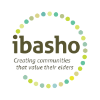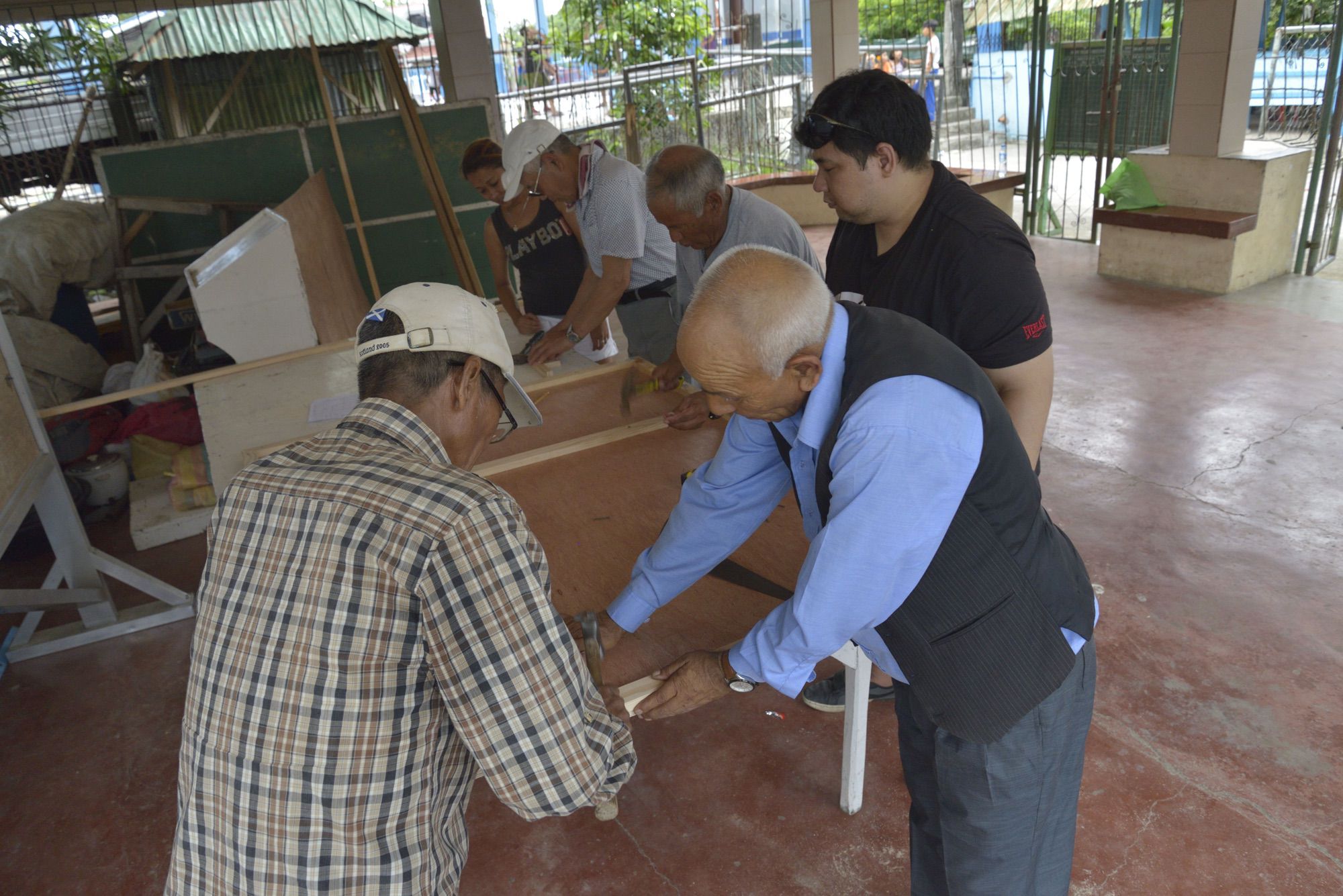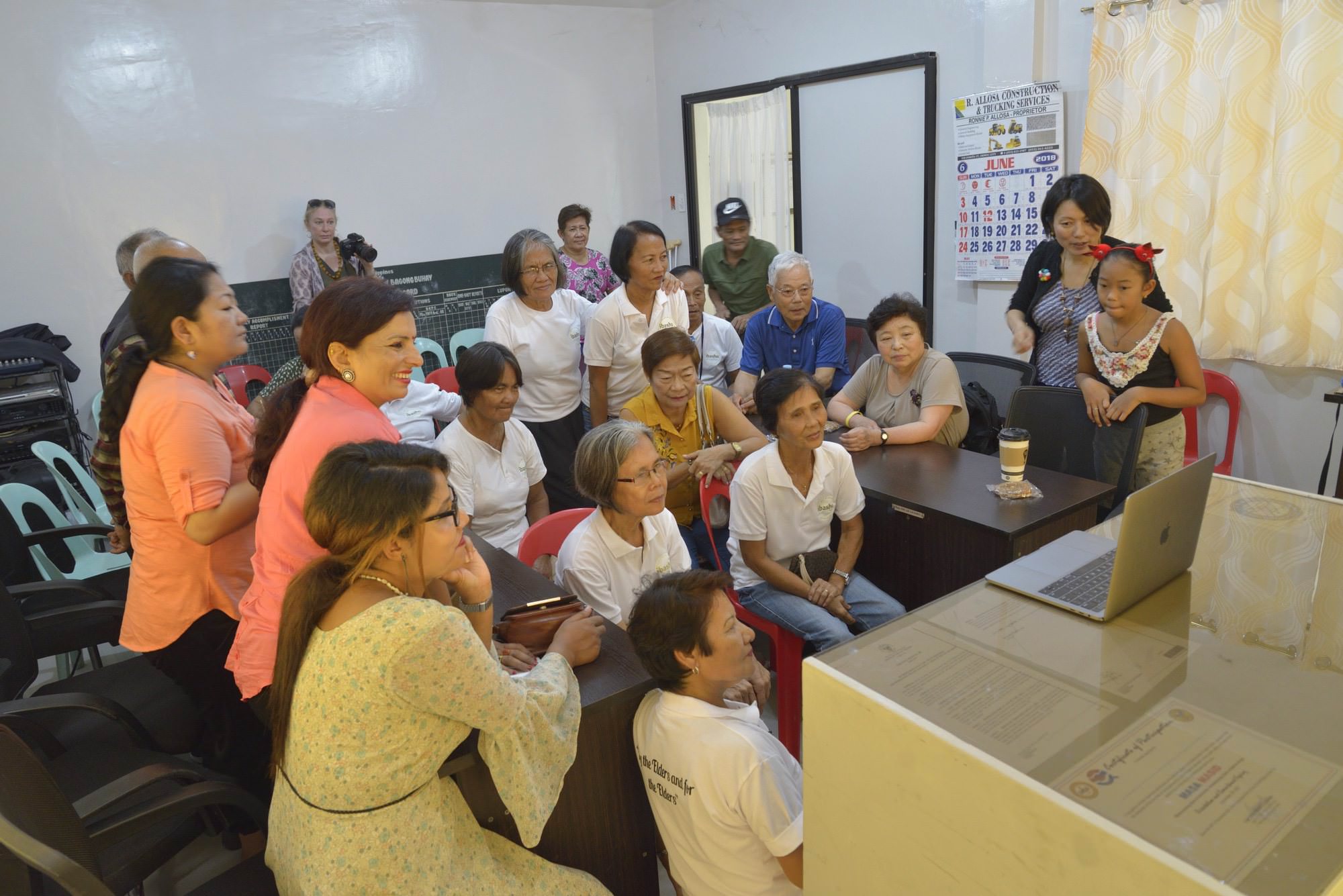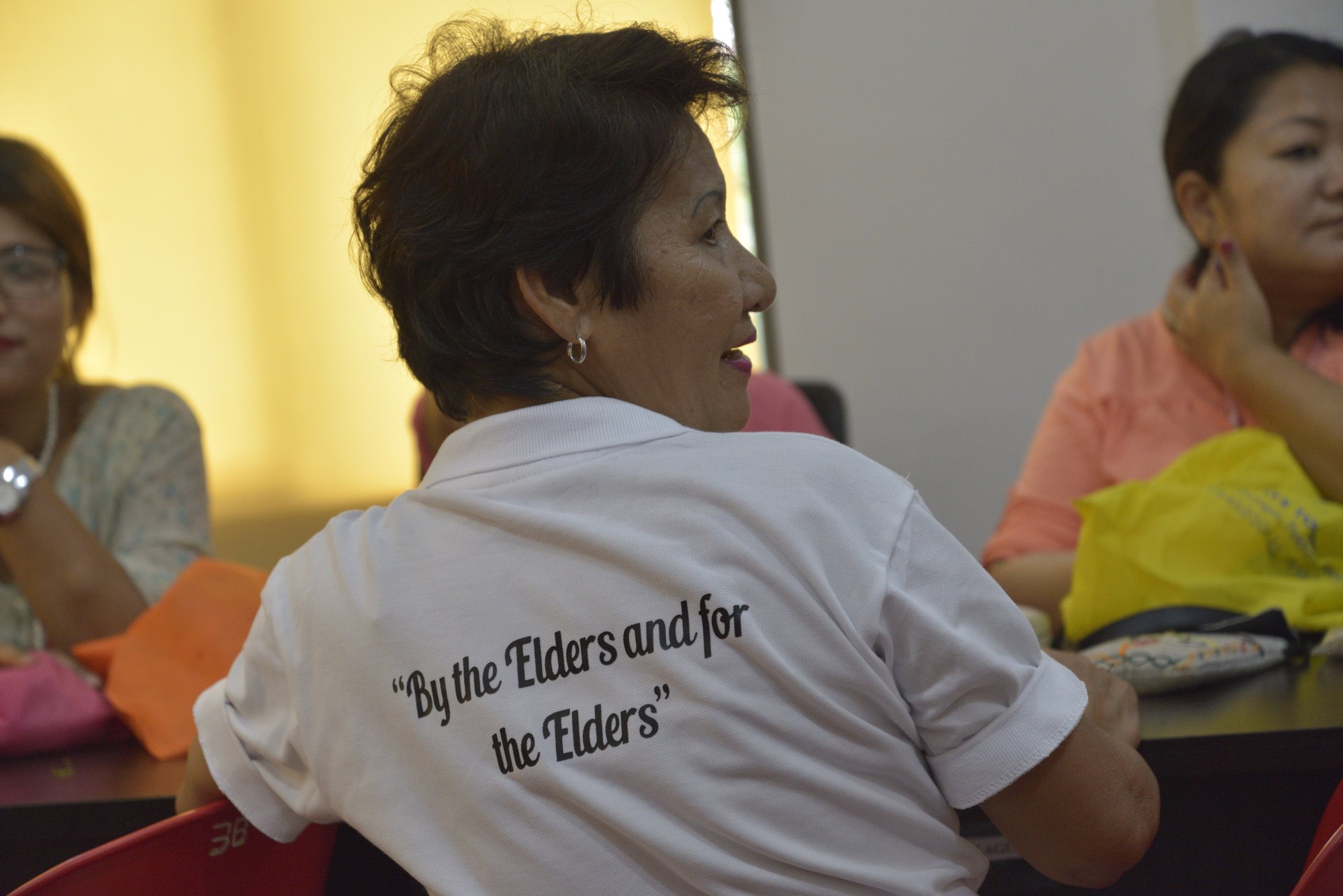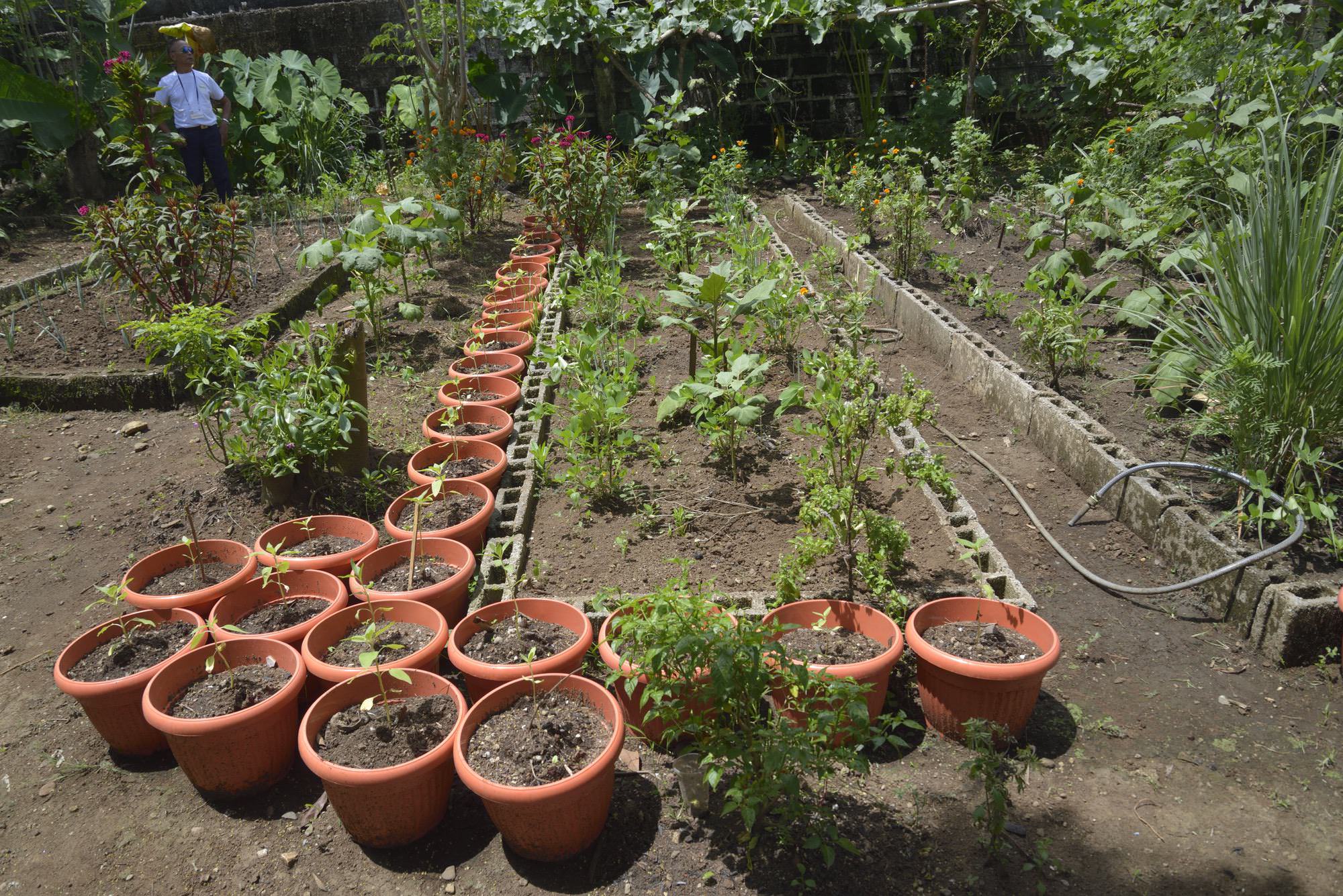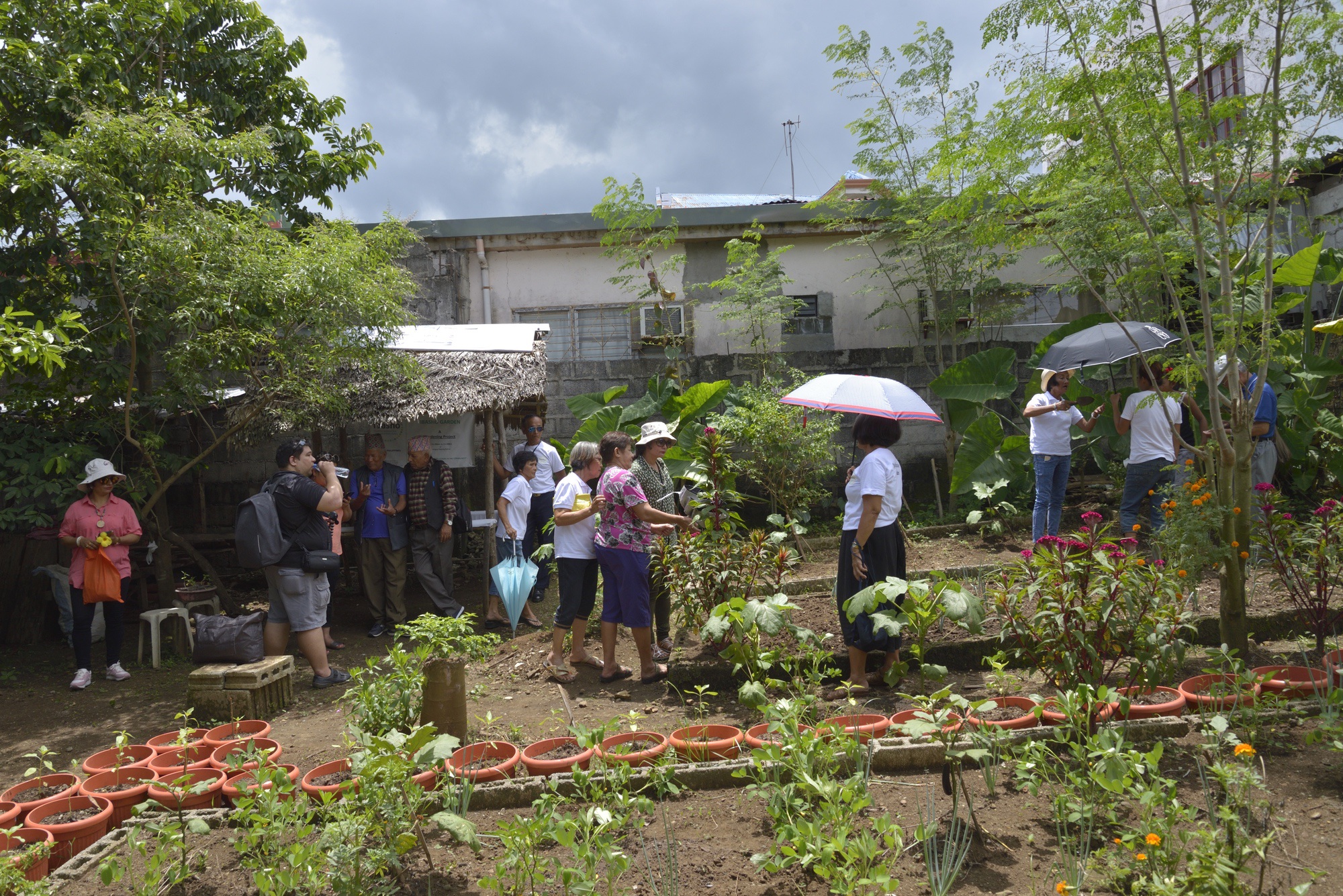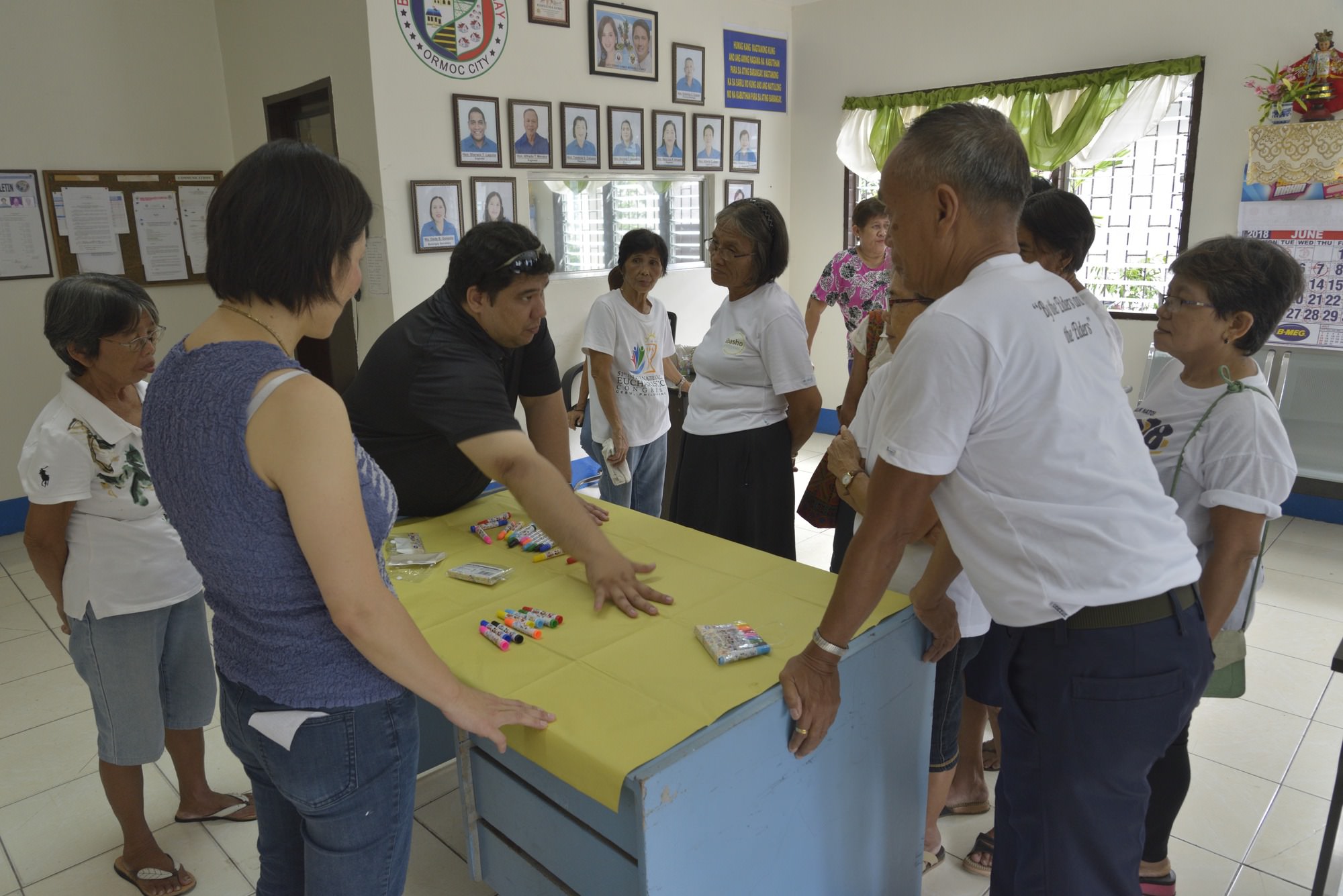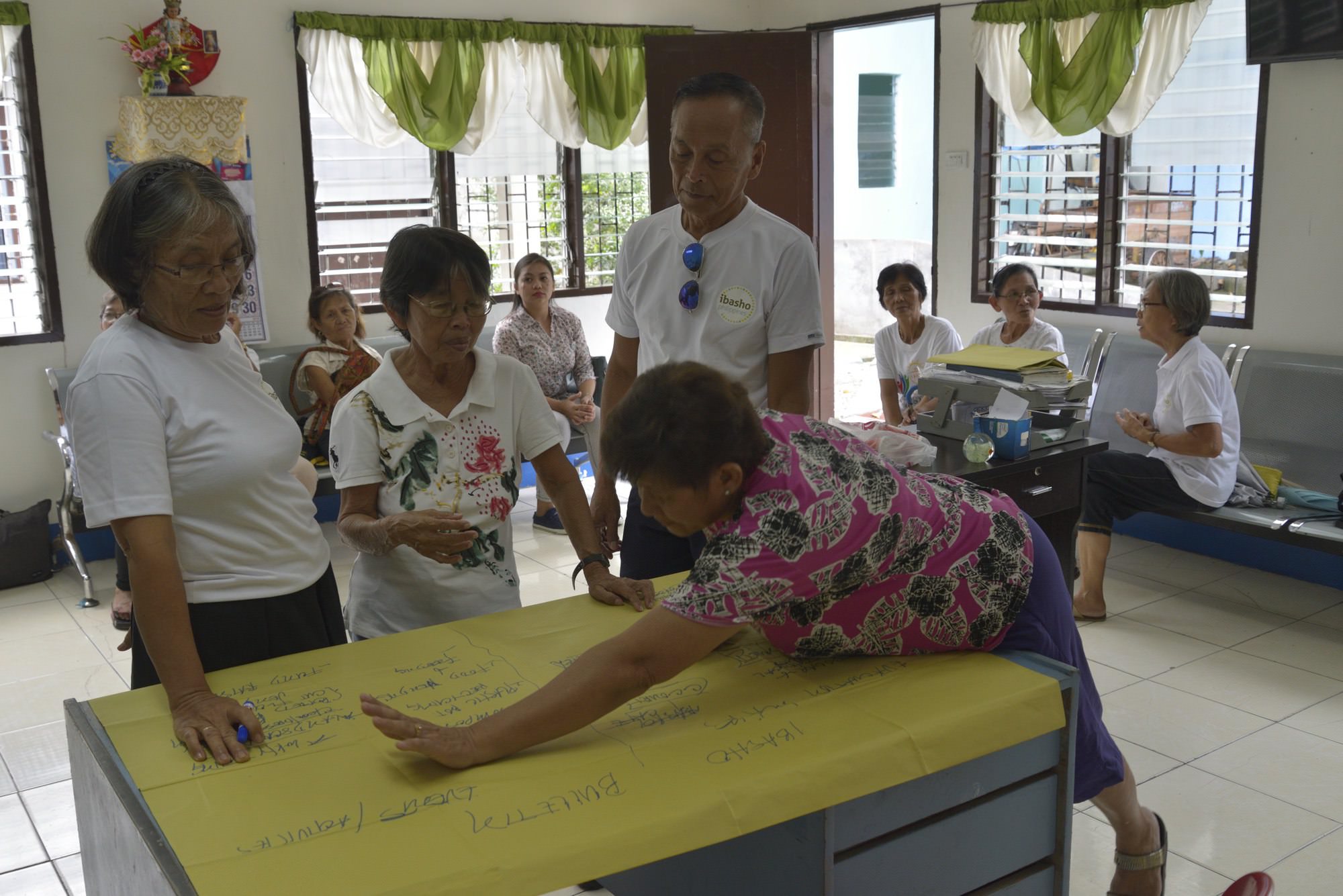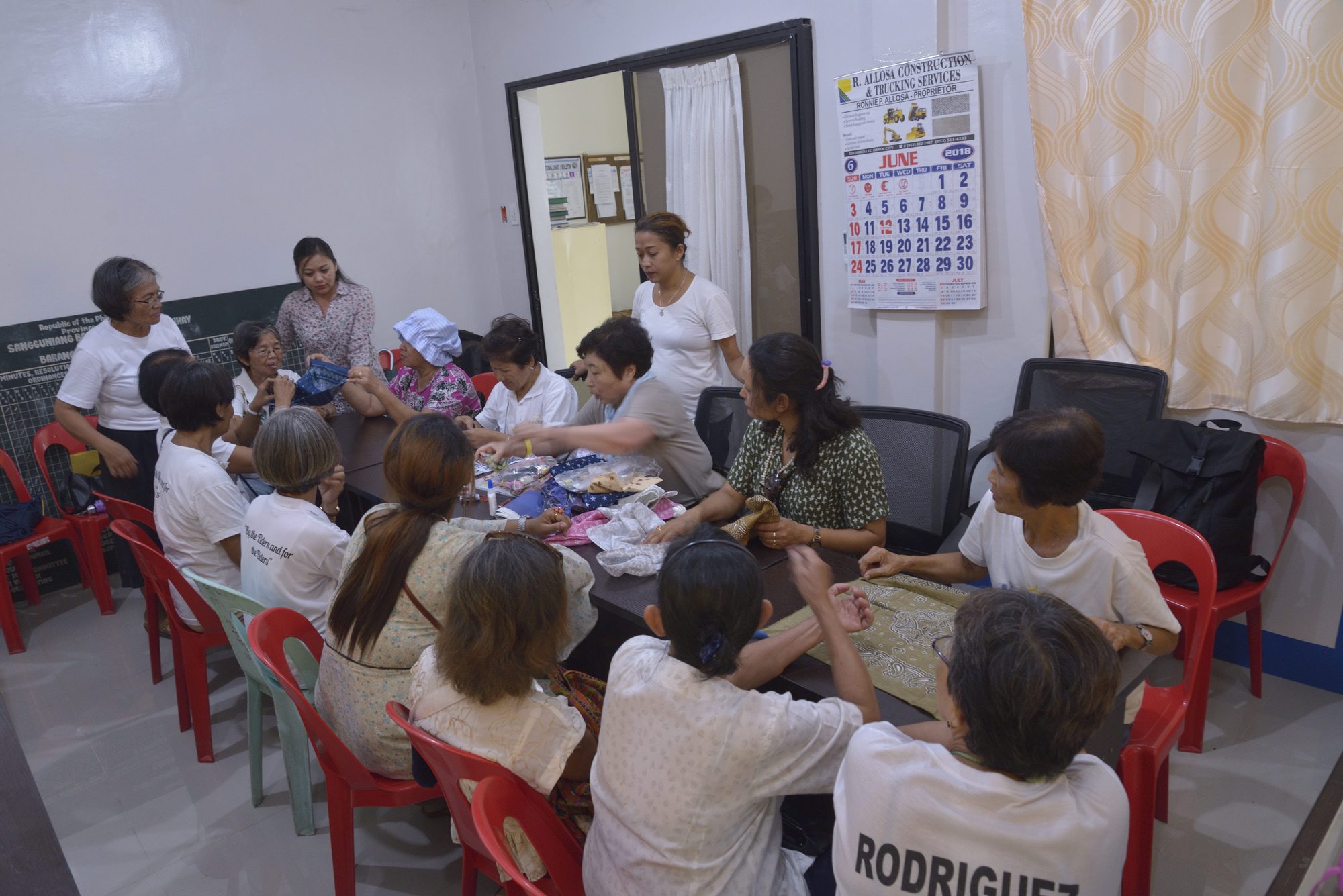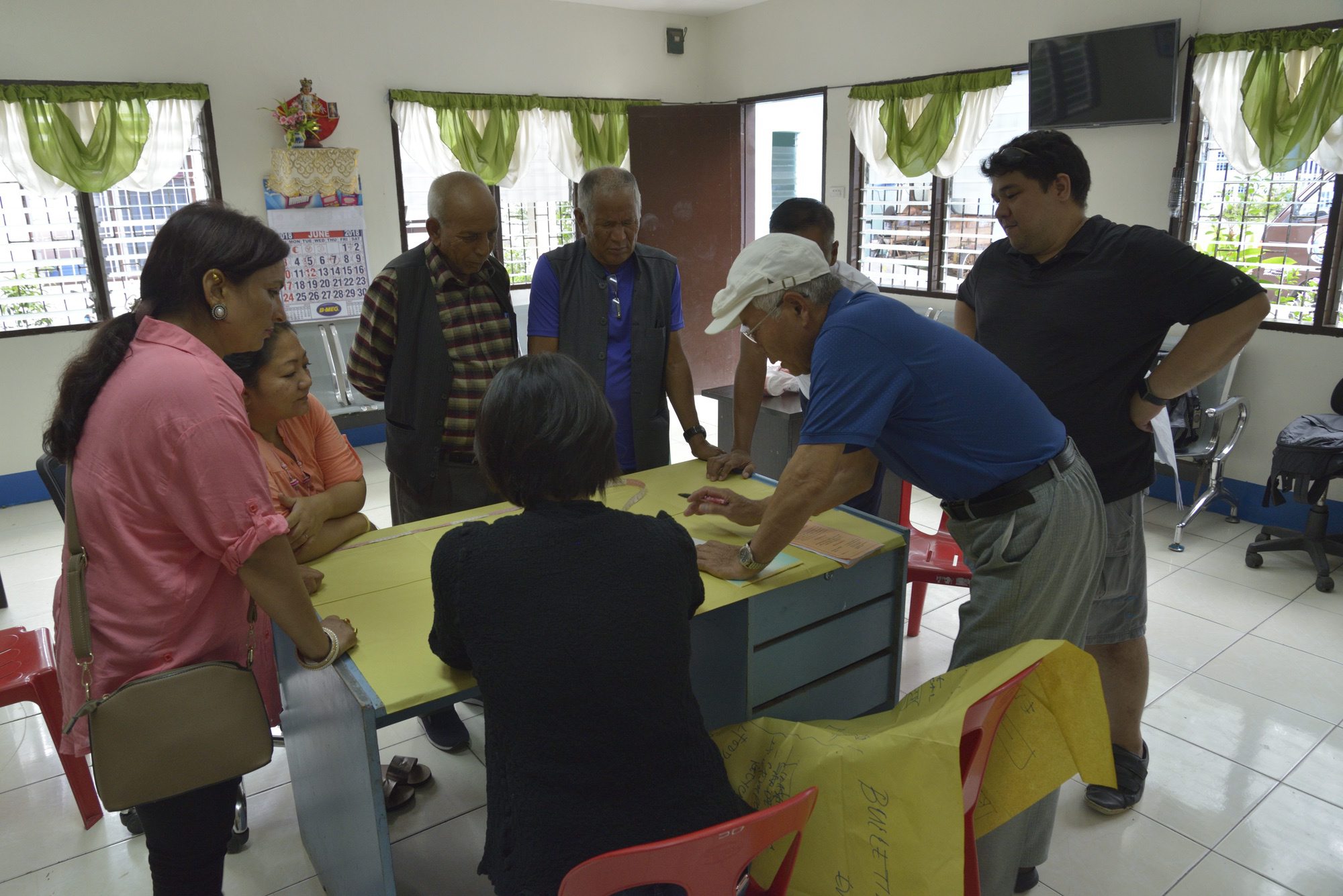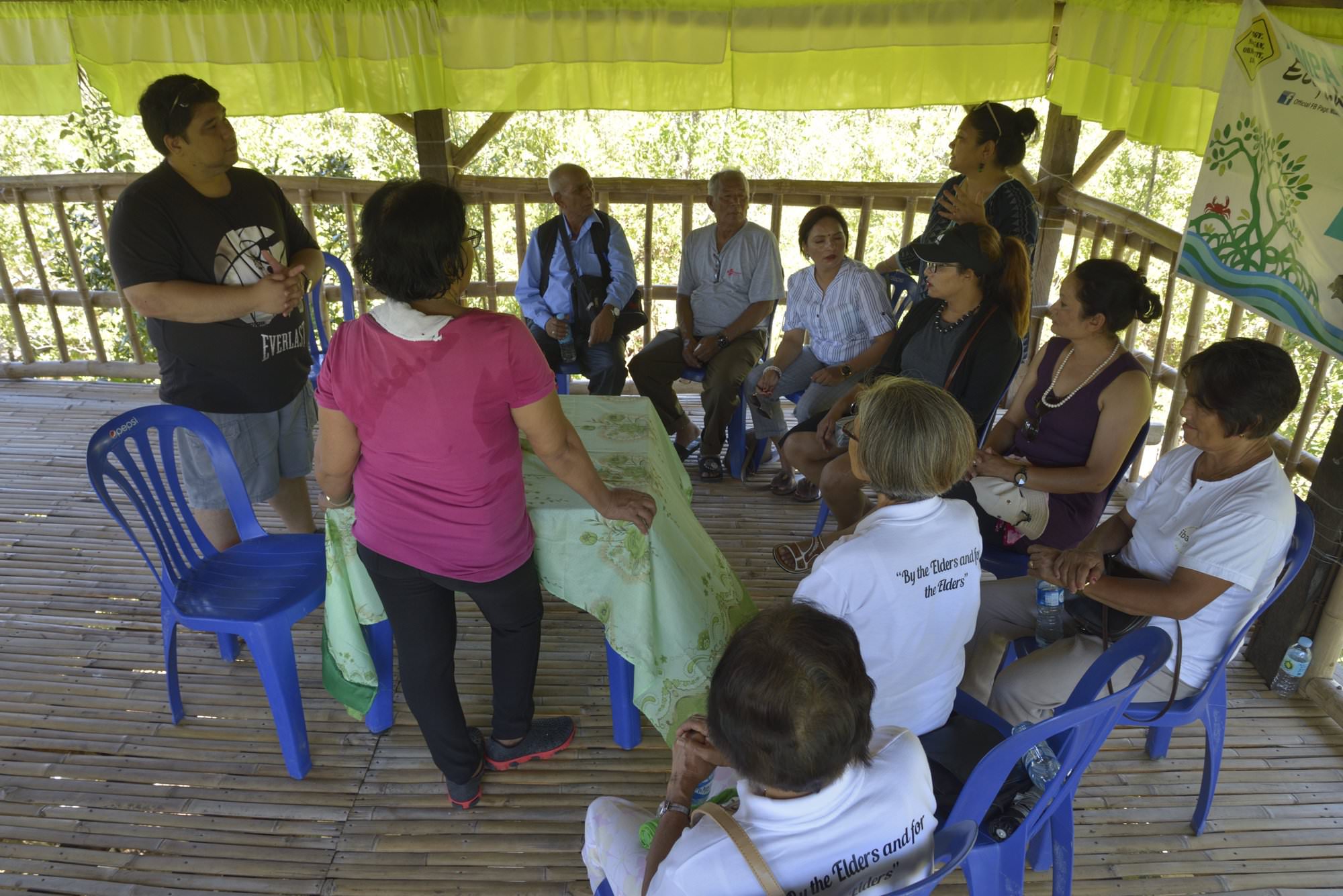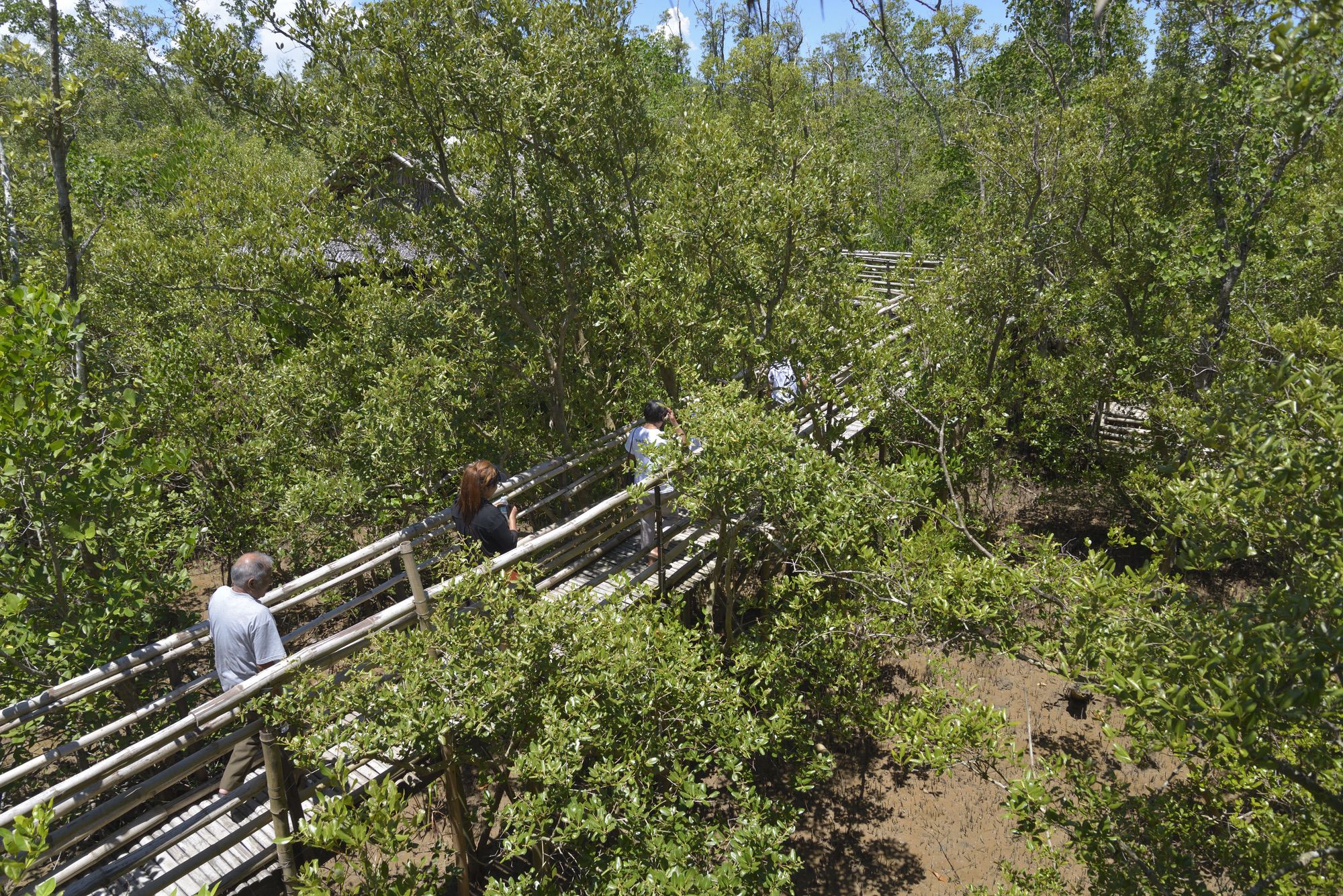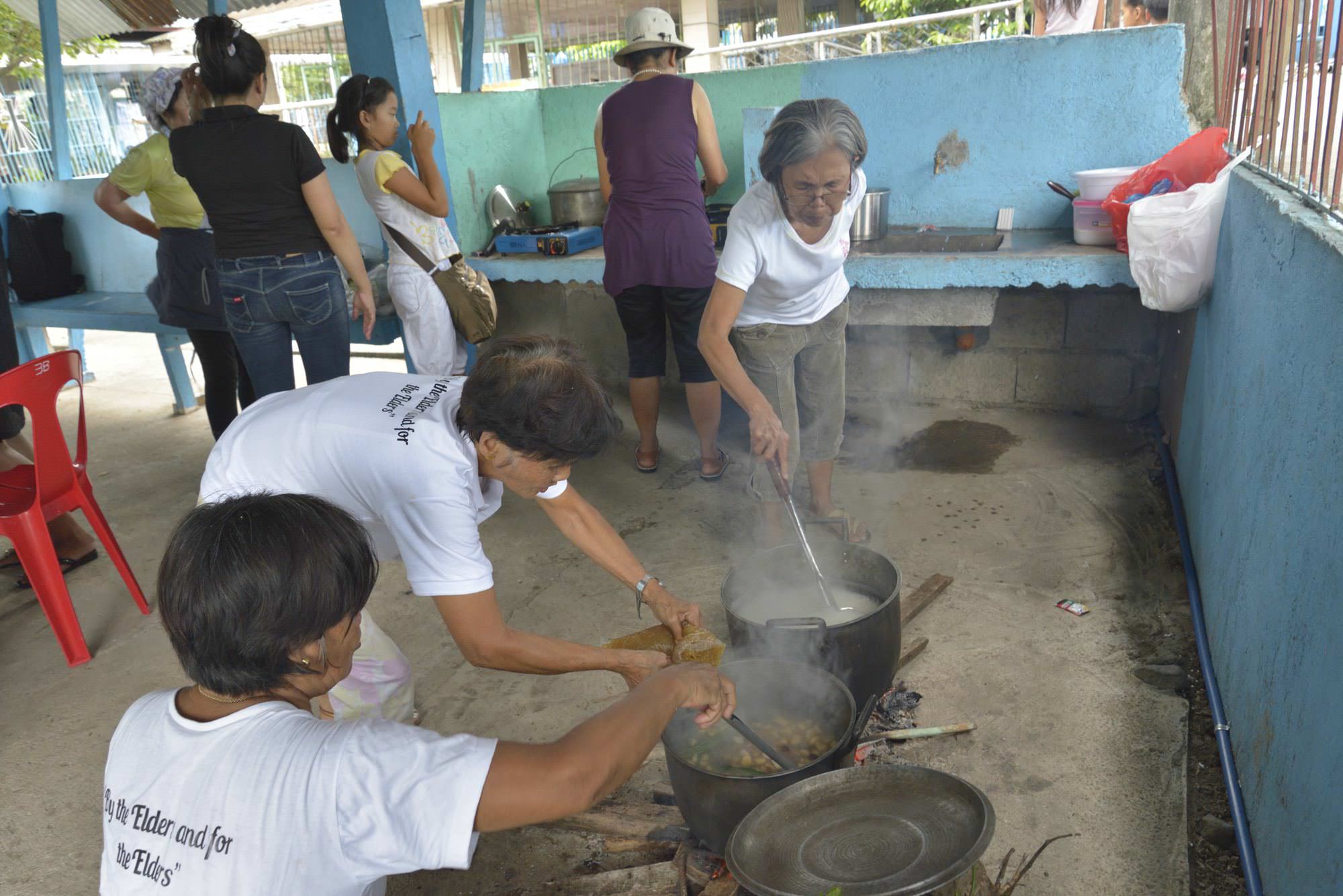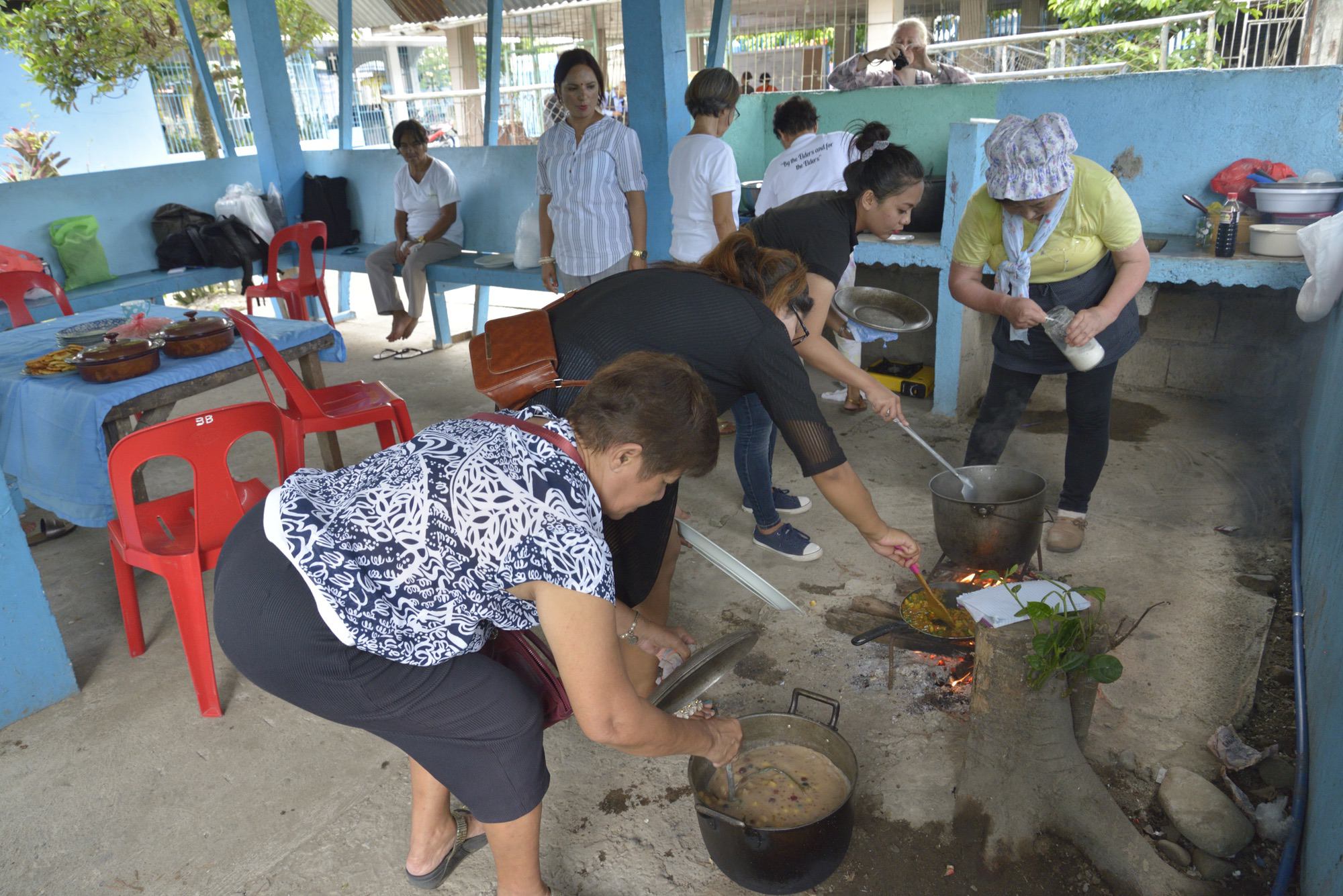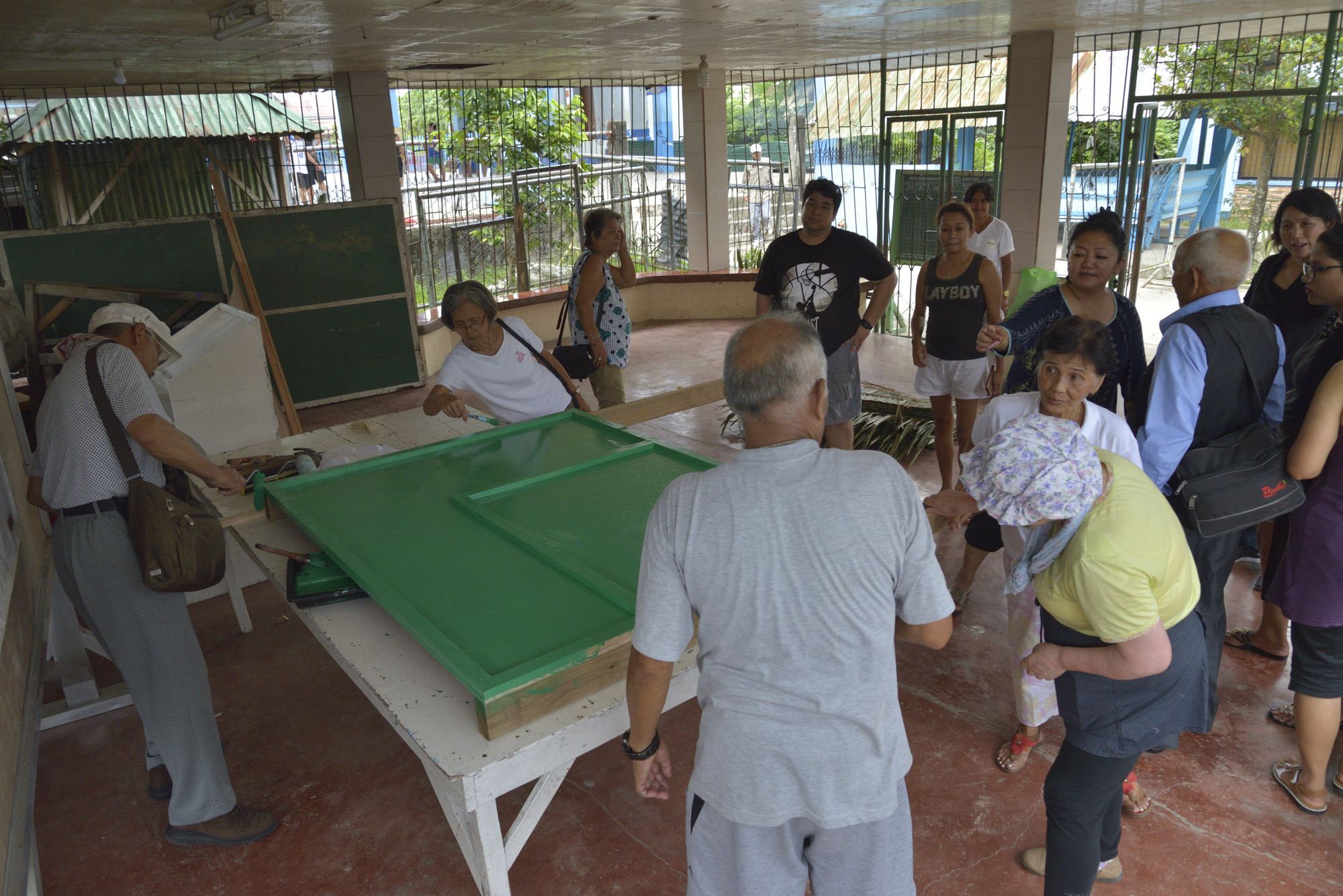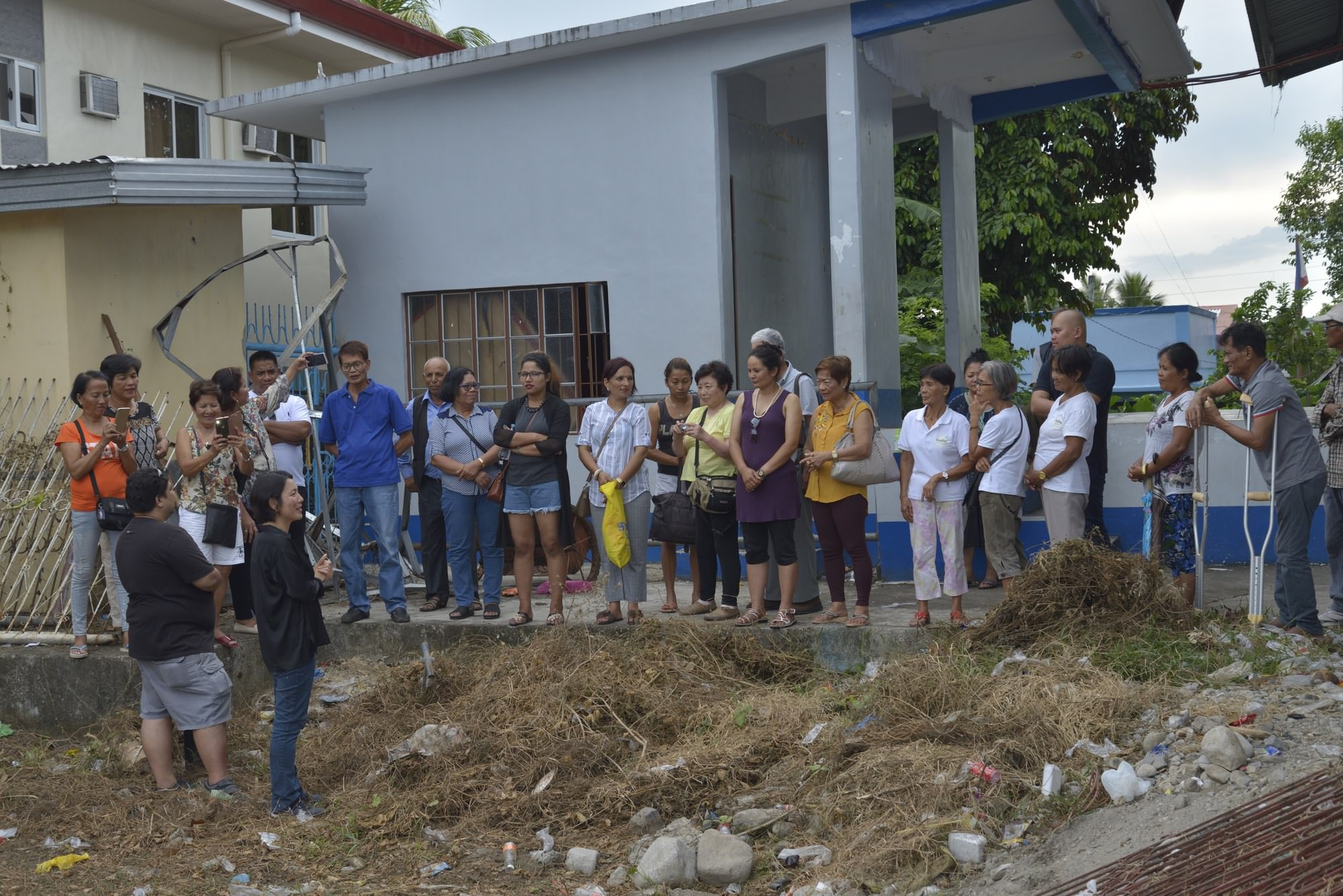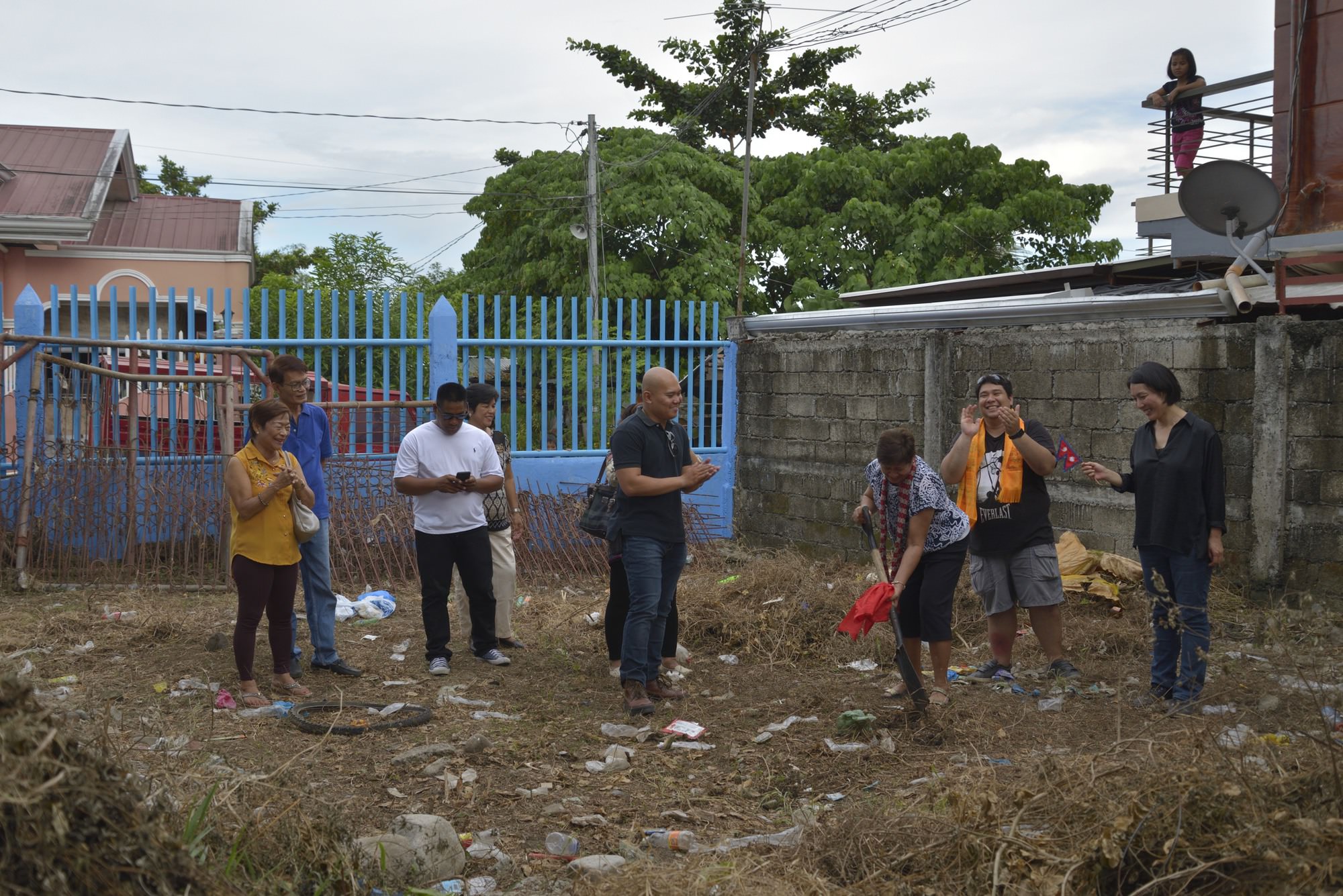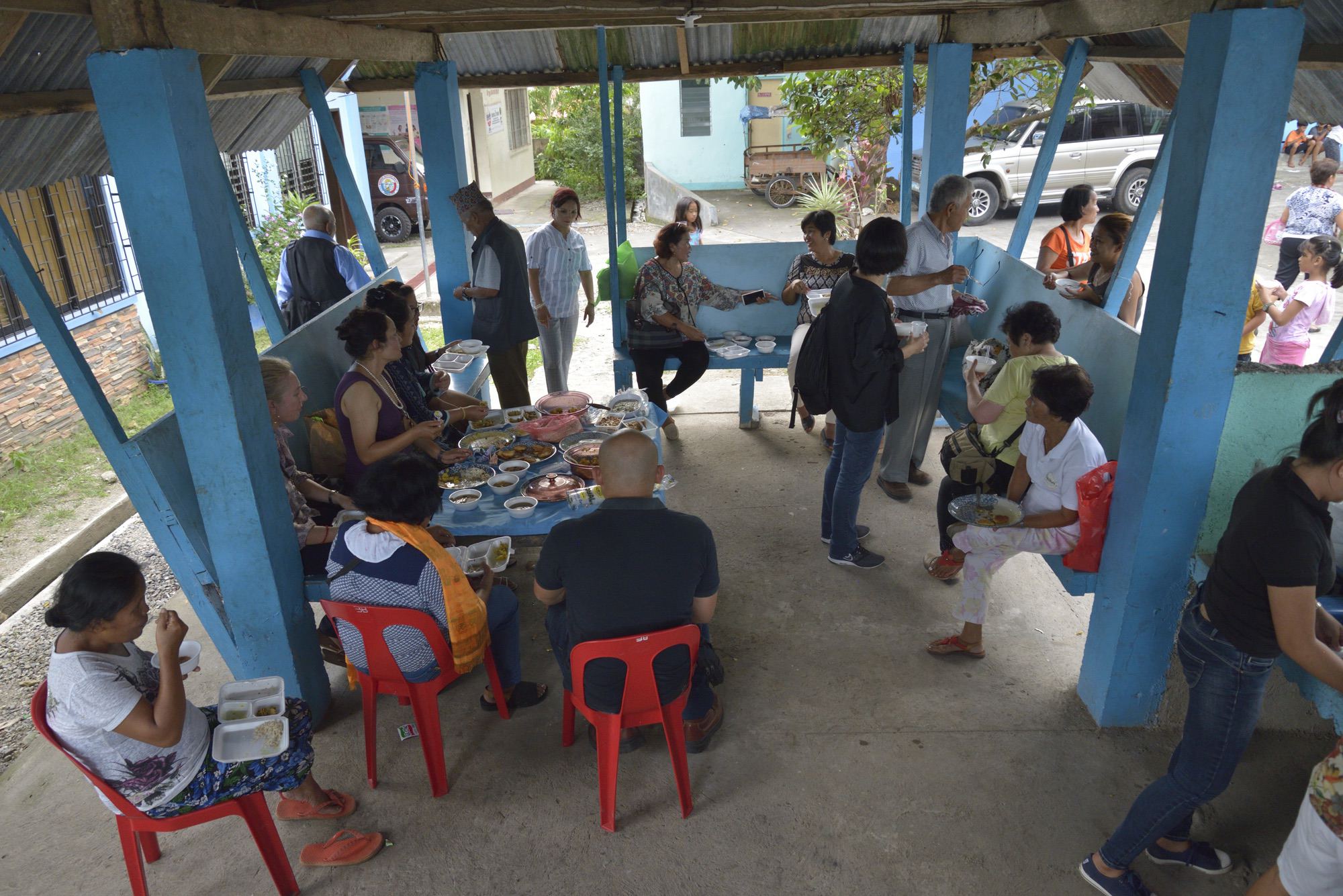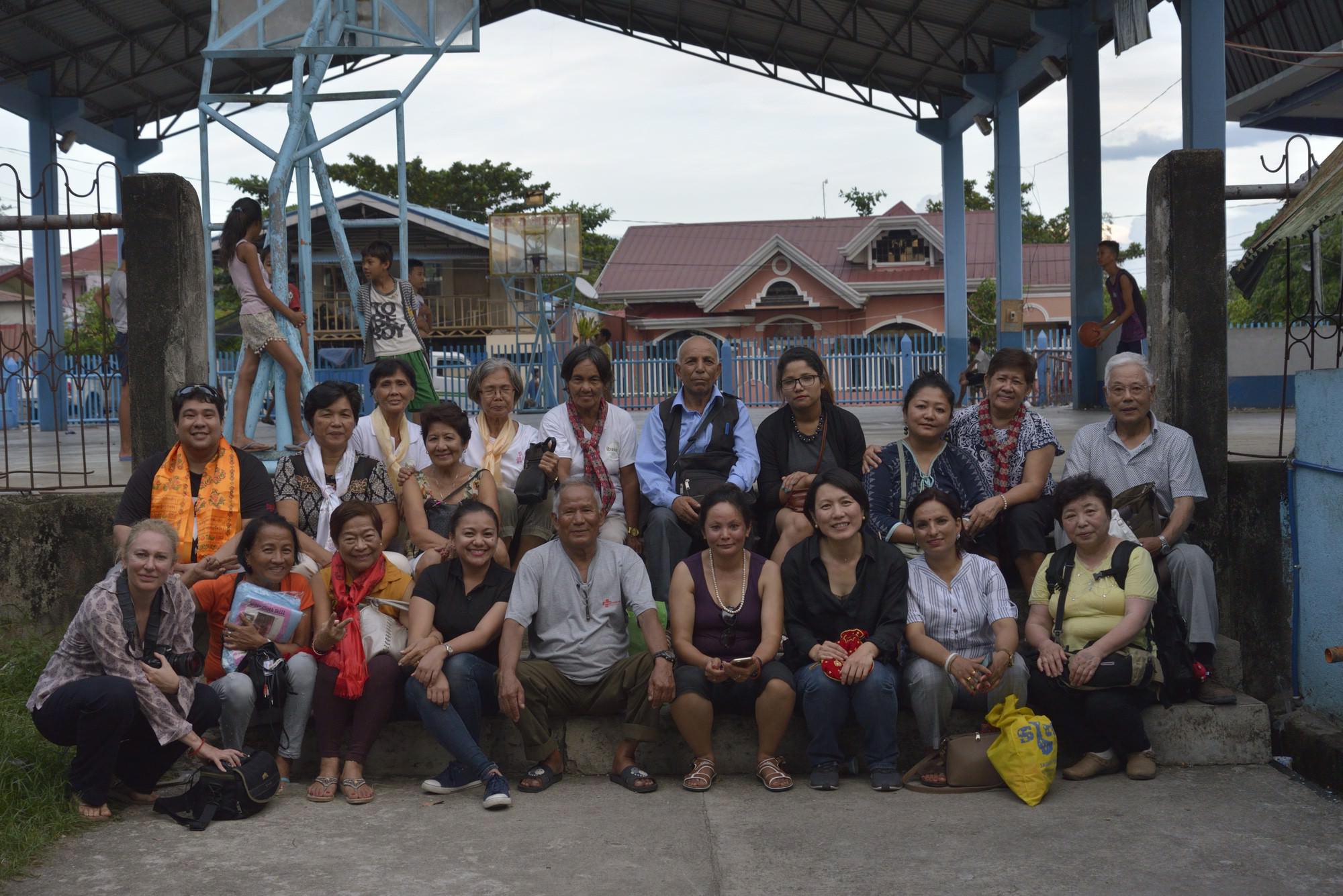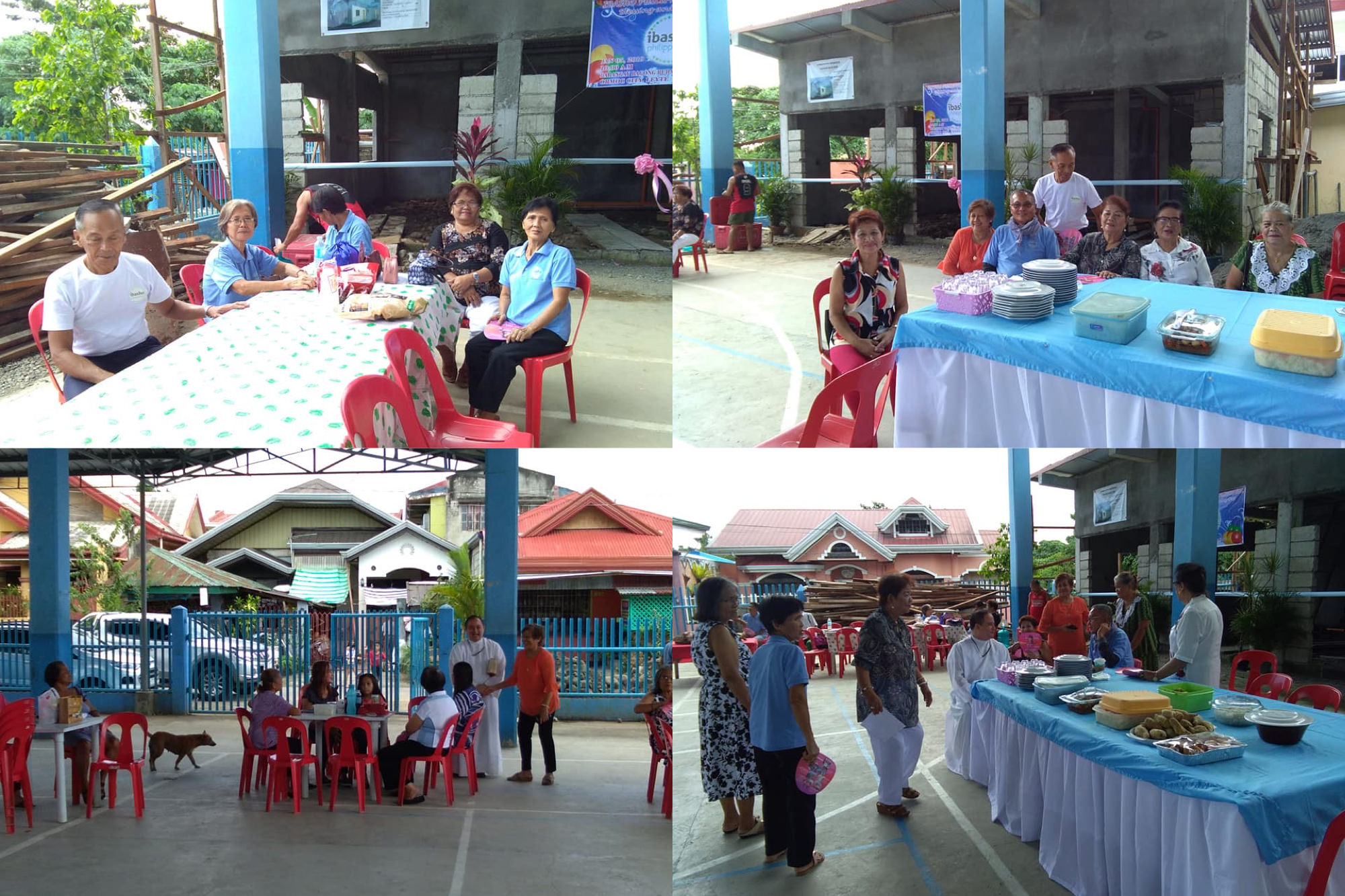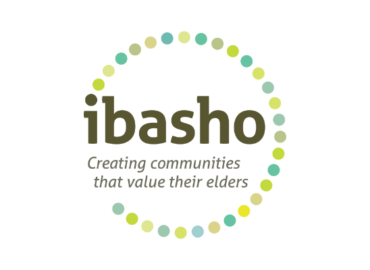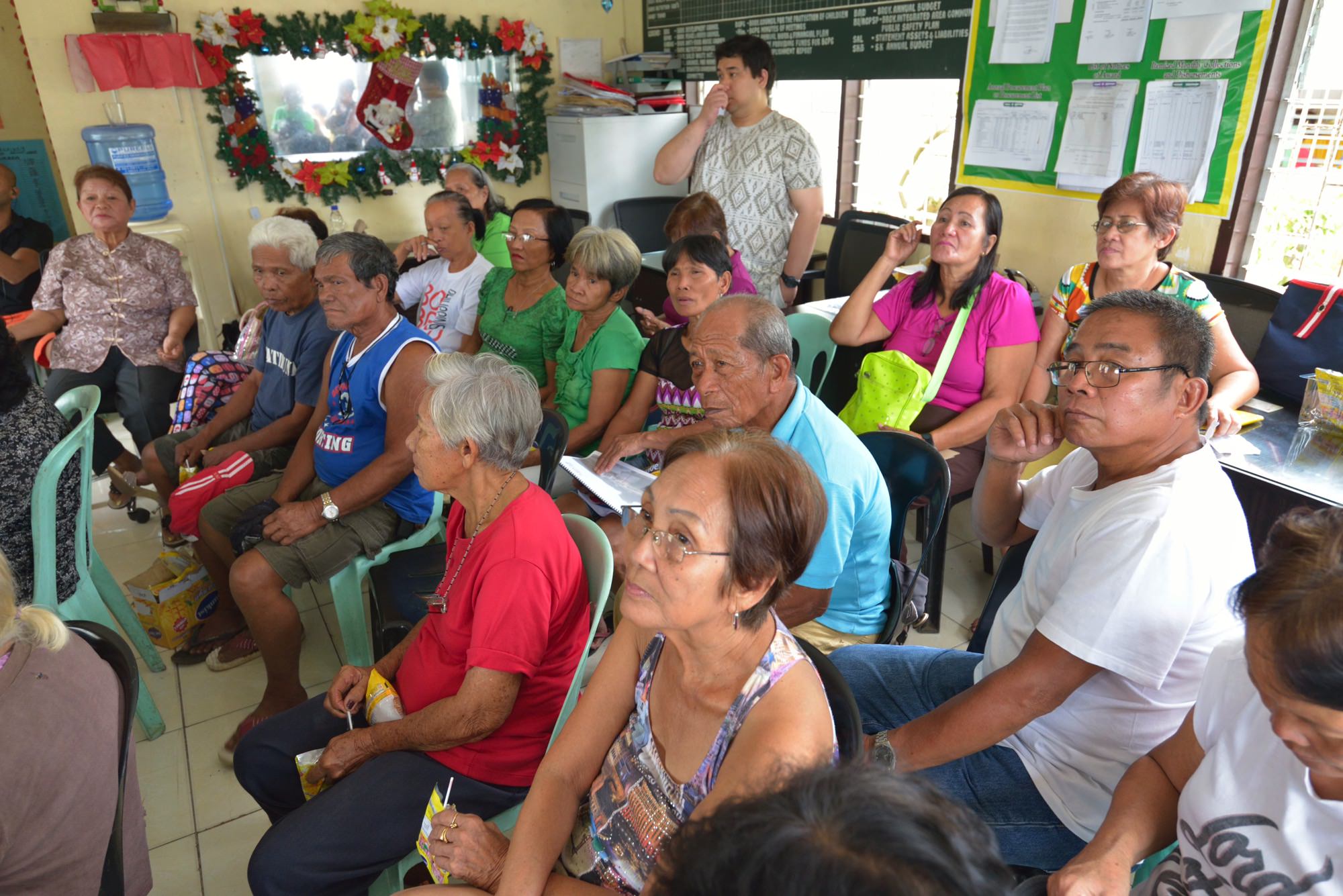A group of 12 community members from Ibasho Nepal and Japan traveled to join the elders in Ormoc to participate in the Peer to Peer knowledge exchange program after the two days symposium at the Asian Development Bank in Manila, Philippines. The onsite program was organized mainly by the elders from Barangay Bagong Buhay, Ormoc on June 23-25, 2018 with the support of the World Bank, GFDRR. The participants were able to visit the Ibasho programs in Ormoc, and other local NGOs livelihood programs to learn about sustainable operation among the community members. In addition to the peer to peer knowledge exchange program, members of Ibasho Philippines invited all elders from Nepal and Japan to the ground-breaking ceremony for the Ibasho café in Barangay Bagong Buhay.
Day 1: June 23rd, 2018
Meeting with community members and elders from three countries (Japan, Nepal, and Philippines):
Elders who participated in the symposium at the Asian Development Bank (ADB) shared their learning to the community members in Barangay Bagong Buhay. “We learned that the challenges we face are the same in the three countries. We are glad to be able to share our experience and support each other,” reported one elder from the Philippines.
Visiting Ibasho farm and future construction site:
The Ibasho farm is a 5-minute walk from the main community building. Elders grow eggplants, peanuts, okra, gourds, local green vegetables, and sunflowers, and sell them to community members. Elders from Japan and Nepal advised the Filipino elders on how to prepare better soil via composting using leaves in the farm. Ibasho Philippines acquired an additional open space for a second farm. The new space is currently being prepared for development and future farming.
Preparation for “signboard” construction:
Ibasho Philippines constructed a signboard that displays events and the evacuation map created by local elders (elders from Japan and Nepal are sharing their projects.)
Skill exchange program:
- Signboard construction and carpentry skills
- Crafts
– Japan: Hat making, paper flowers
– Nepal: Jewelry making
Day 2: June 24th, 2018
Field trip to Mangrove Eco-Tourism Park:
A group of elders visited Naungan San Juan Mangroves Planters Association (NSJMPA) at the Barangay Naungan. The founder of this association shared her stories and experiences regarding why she began NSJMPA and how she organized her community to maintain the operation over 20 years.
Skill exchange program
- Signboard construction
- Cooking skills exchange and community meal program
Ground breaking ceremony
Ibasho Philippines organized a ground-breaking ceremony for their forthcoming Ibasho location. The Ibasho café will be built and operated by the elders. Additional activities, such as livelihood and youth education/knowledge transfer projects, will be implemented as well.
Farewell party
For the farewell party, community members enjoyed conversation and a meal together. Although elders from the three countries spoke different languages, they were able to communicate with each other without much difficulty.
Reflection
The participants believe the onsite peer to peer knowledge exchange program was a wonderful learning experience, however some felt they did not have enough time to adequately discuss community issues since the schedule included many programs and activities. Additional informal knowledge exchange programs need to be integrated into future planning. Also, participants asked Ibasho to coordinate virtual peer to peer learning opportunities so that they can keep in touch regularly. While this requires logistical coordination, it may be beneficial to maintain their motivation and to expand their support network. There are still many gaps and challenges in translating and implementing Ibasho’s 8 principles into the different cultures. It was clear that elders who were involved in the Ibasho projects developed positive roles in their communities. It is important for Ibasho to actively reach out to local government and community figures to better understand how multiple entities can collaborate to foster elder-led community projects that will ultimately benefit community members of all ages.
This activity was made possible with the financial support from GFDRR through the Inclusive Community Resilience program and the Japan – World Bank Program on Mainstreaming Disaster Risk Management in Developing Countries program, and technical support from the Disaster Risk Management Hub Tokyo.
